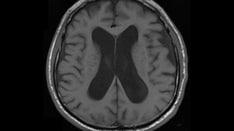Stroke is a "disease of disparities," with racial and ethnic inequities in incidence, prevalence, treatment, and outcomes, and research is needed to identify structural or "upstream" interventions to address the problem, the American Heart Association (AHA) says in a new scientific statement.
"There are enormous inequities in stroke care, which lead to significant gaps in functional outcomes after stroke for people from historically disenfranchised racial and ethnic groups, including Black, Hispanic, and Indigenous peoples," writing group chair Amytis Towfighi, MD, professor of neurology, University of Southern California, Los Angeles, says in a news release.
"While research has historically focused on describing these inequities, it is critical to develop and test interventions to address them," Towfighi adds.
The scientific statement was published online May 15 in the journal Stroke.
It follows a 2020 AHA presidential advisory that declared structural racism a fundamental driver of poor health and early death from heart disease and stroke.
Towfighi and colleagues reviewed the literature on interventions to address racial and ethnic inequities to identify gaps and areas for future research.
They note that various interventions have shown promise in reducing inequities across the stroke continuum of care.
For example, data suggest that careful attention to stroke preparedness among patients, caregivers, and emergency medical services (EMS) can reduce inequities in getting people suspected of having a stroke to the emergency department quickly, with delivery of prompt treatment.
However, insufficient research attention has been paid to reducing inequities in rehabilitation, recovery, and social reintegration, the writing group says.
In addition, most studies have addressed patient-level factors, such as medication adherence, health literacy, and health behaviors, but not upstream social factors such as structural racism, housing, income, food security, and access to care, which also affect stroke incidence, care, and outcomes.
"Combating the effects of systemic racism will involve upstream interventions, including policy changes, place-based interventions, and engaging with the health care systems that serve predominantly historically disenfranchised populations and the communities they serve, understanding the barriers, and collaboratively developing solutions to address barriers," the writing group says.
Further research is needed across the stroke continuum of care to tackle racial and ethnic inequities in stroke care and improve outcomes, they say.
"It's critical for historically disenfranchised communities to participate in research so that researchers may collaborate in addressing the communities' needs and concerns," Bernadette Boden-Albala, DrPH, MPH, vice chair of the writing group, says in the news release.
"Opportunities include working with community stakeholder groups and community organizations to advocate for partnerships with hospitals, academic medical centers, local colleges and universities; or joining community advisory boards and volunteering with the American Heart Association," Boden-Albala adds.
Towfighi encourages healthcare professionals to "think outside the 'stroke box.' Sustainable, effective interventions to address inequities will likely require collaboration with patients, their communities, policymakers and other sectors."
This scientific statement was prepared by the volunteer writing group on behalf of the AHA Stroke Council, the Council on Cardiovascular and Stroke Nursing, the Council on Cardiovascular Radiology and Intervention, the Council on Clinical Cardiology, the Council on Hypertension, the Council on the Kidney in Cardiovascular Disease, and the Council on Peripheral Vascular Disease.
This research had no commercial funding.
Stroke. Published online May 15, 2023. Abstract
For more news, follow Medscape on Facebook, Twitter, Instagram, YouTube, and LinkedIn
Credits:
Lead Image: Monkey Business Images/Dreamstime
Medscape Medical News © 2023 WebMD, LLC
Send news tips to news@medscape.net.
Cite this: AHA Urges Action Against Racial Inequities in Stroke Care - Medscape - May 16, 2023.












Comments